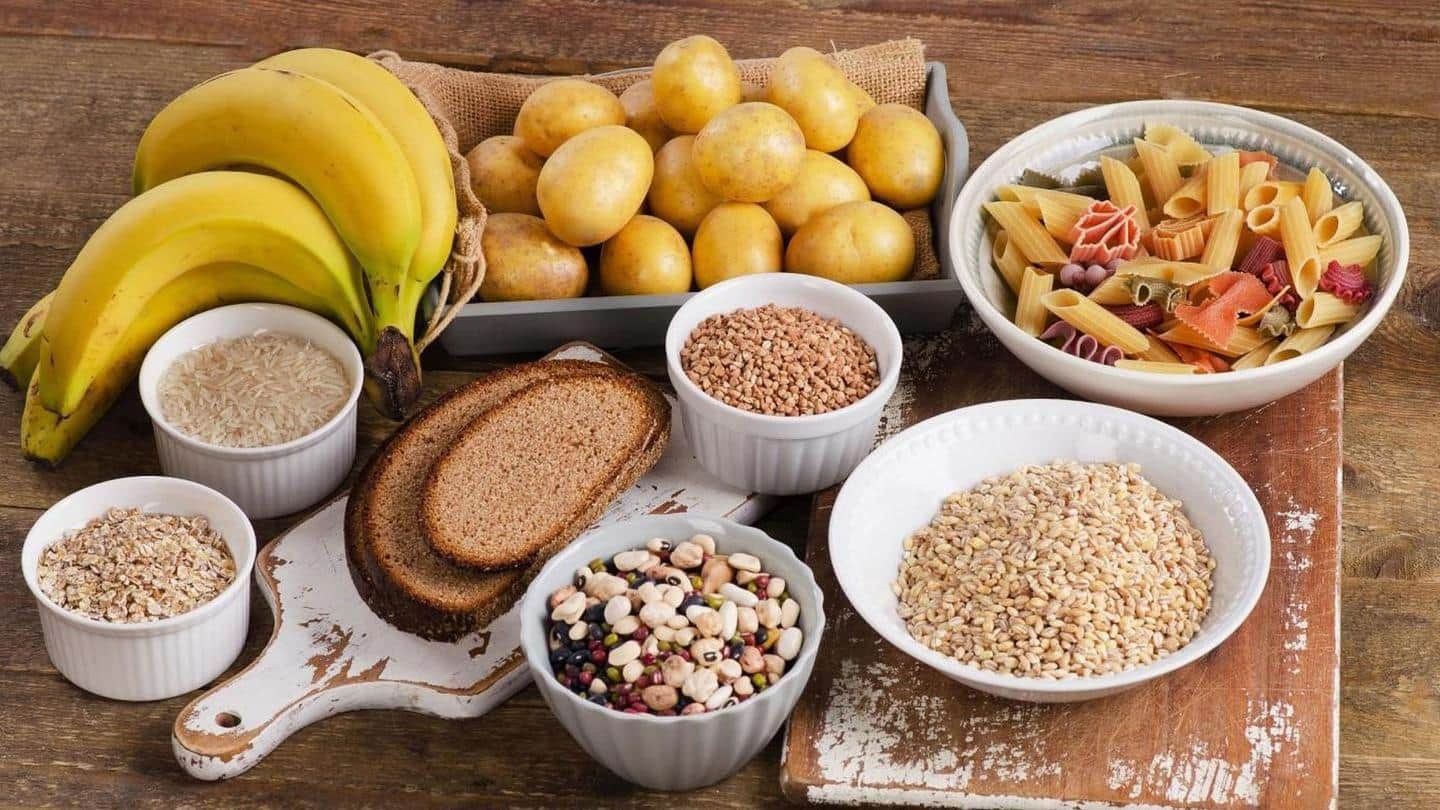
Resistant starch: Types, benefits, and everything you should know
What's the story
Resistant starch is the type of starch that doesn't get digested but instead reaches the colon through the stomach and small intestine and feeds gut bacteria.
When regular starch is digested, it breaks down into glucose in the small intestine. However, this doesn't happen with resistant starch; it acts as a dietary fiber with various health benefits.
Let's find out more about resistant starch.
Types
Resistant starch is mainly divided into four types
Type 1 resistant starch is found in grains, legumes, and seeds.
Type 2 resistant starch is found in starchy foods like raw potatoes and unripe bananas.
Then, Type 3 is formed when starchy foods like rice are cooled down after cooking. This process is called retrogradation, where digestible starches are converted into resistant starches.
Type 4 resistant starch is formed through a chemical process.
Colon
Good for the colon, reduces risk of colorectal cancer
Resistant starch is shown to increase the butyrate levels in the colon, thus reducing the pH level and inflammation.
It also helps with reducing the risk of colorectal cancer.
The therapeutic effects of resistant starch on the colon also mean that it is effective against various several digestive diseases and inflammatory bowel diseases like ulcerative colitis, Crohn's disease, constipation, and diarrhea.
Insulin sensitivity
Improves insulin sensitivity in the body
Insulin sensitivity is the body's responsiveness to insulin, and low insulin sensitivity increases the risk of type 2 diabetes, obesity, heart disease, and Alzheimer's.
Studies suggest people who consumed 15-30 grams of resistant starch every day for four weeks showed a 33-50% improvement in insulin sensitivity.
Thus, resistant starch is an essential part of the diet that helps improve the quality of life.
Weight loss
Makes you feel full and aids in weight loss
Resistant starch has fewer calories than regular starch, and anecdotal evidence suggests it can aid in weight loss.
This is because resistant starch increases the feeling of fullness, thus reducing the appetite and leading to lesser calorie intake.
If you're looking to lose weight, a bowl of oats every day and healthy grains like sorghum and barley will help in losing those extra pounds.